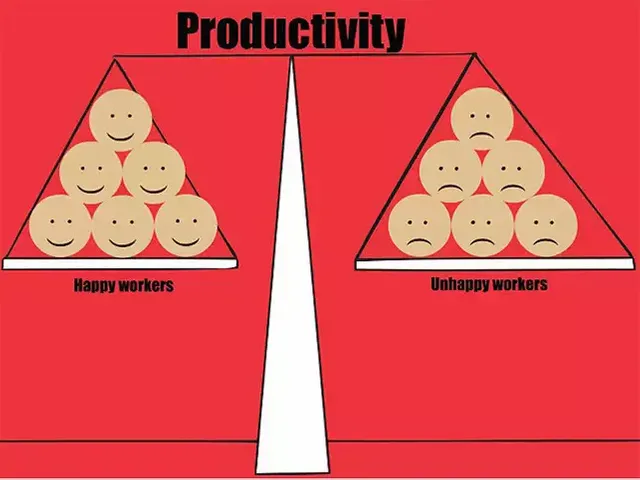About a week or so ago, on the radio, the DJs posted a question that has undoubtedly gone through the minds of employees at one point in their careers (past or present). And that question was “would you work for a good company with a bad boss, or a bad company with a good boss?”.
In the same essence, young adults [especially] preparing for the working world are often told to choose their bosses, not their jobs. While that may be somewhat confusing for someone who has not had a taste of the office life (or where ever your job may take you), it can become very clear, very quickly.

Photo: www.seek.com.au
Alan Hall wrote on Forbes.com in 2013 that more than two (2) million Americans leave their jobs every month, despite the 7.9% unemployment rate (at that time). More often than not, the resignation is due to people being, as simple as it sounds, unhappy. The aforementioned Forbes.com article cites a study done by Accenture which showed 31% of the unhappiness stems from employees not liking their boss, and 43% was due to the lack of recognition (lack of empowerment (31%) and internal politics (35%) making up the rest).
The Houdini Boss
As employees, no matter how mature or experienced, we expect (to varying degrees) that the boss would be there in times of need, or when we face difficulties in the work place, be it with the work itself, or with the work environment. But most times, employees are left alone, hanging, to deal with the problems themselves and while this can be said to be what is expected of employees, as crew members on a “ship”, a captains role is always very important. Huffingtonpost.com noted that 40% of respondents in a survey done by Woohoo Inc. mentioned that the lack of input and guidance from their boss as their most recent bad day at work while 37% mentioned the lack of clarity in the workplace’s goals.
Bad days = Unhappy Workers
Woohoo Inc. noted in their study that while it is not feasible to expect employees to have good days every day, and that bad days are pretty normal, too many bad days at work can have adverse effects on productivity and customer (or client) satisfaction — consequently increasing absenteeism and employee turnover.

Credit: The Atlantic
A Simple Solution
I’ve never been a manager or an employer, but as a employee who has been unhappy at a job because of a bad boss and/or lack of a leader, I can see what makes me unhappy and what I would have liked to see done and/or addressed. Harvard Business Review wrote that:
“Managers can play a major role in designing motivating, meaningful jobs. The best go out of their way to help people do work they enjoy — even if it means rotating them out of roles where they’re excelling. A few years ago, one of Facebook’s directors, Cynthia, was leading a large team of HR business partners. She realized that she wasn’t spending her time doing what she enjoyed most: solving problems with her clients. She had taken on more responsibilities managing a large team because of her strength as a trusted adviser to some of Facebook’s key leaders. But once she was in the job, she realized it meant doing less of the work that energized her.”
For those who are managers or employers, do not merely treat your employees as workmen, but fellow human beings. While this may be hard to do in a big company, but it is pertinent to understand that human connection can make a world of difference in an employee’s productivity and efficiency. A happy worker is often, a better worker. A big pay cheque or a handsome bonus may be attractive, but the satisfaction and gratification is short-term while a boss who gives appreciation and recognition to his employee will have a lasting impression.
Remember that we are all trying to make an honest living and it will not hurt you, as a boss or an employer, to be more human towards your crew, your staff, your workers, your employees. In fact, it will do a world of good for you and your company.

Credit: The Economic Times
Congratulations @mikeshashimi! You have completed the following achievement on Steemit and have been rewarded with new badge(s) :
Click on the badge to view your Board of Honor.
If you no longer want to receive notifications, reply to this comment with the word
STOPDownvoting a post can decrease pending rewards and make it less visible. Common reasons:
Submit